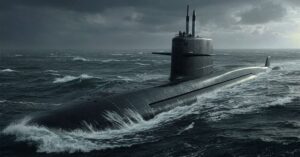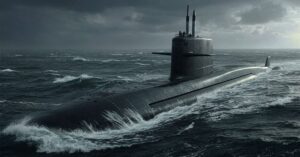
Brazil Offers Free Cruise Ship Cabins To Help Poor Nations Attend COP30 Climate Summit
November 3, 2025
Lack Of Coordination Between Crew & Pilots Caused Fremantle Ship Collision: ATSB
November 3, 2025

Pakistan’s navy expects to commission its first Chinese-designed Hangor-class submarine in 2026, under a defence deal worth around US$5 billion (S$6.5 billion) with Beijing.
According to Pakistan’s naval chief Admiral Naveed Ashraf, the project under which Islamabad will acquire eight submarines by 2028 is progressing smoothly. He told Chinese state media that the new fleet would significantly improve the country’s ability to patrol the North Arabian Sea and safeguard its maritime interests.
Under the agreement, the first four diesel-electric submarines are being built in China, while the remaining four will be assembled in Pakistan to help develop local shipbuilding skills.
Pakistan has already launched three of the submarines into China’s Yangtze River from a shipyard in Hubei province. Admiral Ashraf reportedly said that Chinese equipment has been reliable, advanced and suited to the navy’s operational needs.
He added that the Pakistan Navy is focusing on new technologies such as artificial intelligence, unmanned systems and advanced electronic warfare, and is exploring further cooperation with China in these areas.
The update comes after an incident in May when Pakistan’s air force reportedly used Chinese-made J-10 fighter jets to shoot down an Indian Air Force Rafale aircraft made by France. The clash between the two nuclear-armed neighbours surprised many and sparked debate over the performance of Western and Chinese weapons.
According to data from the Stockholm International Peace Research Institute (SIPRI), Pakistan is China’s largest arms customer, accounting for more than 60 per cent of Beijing’s total weapons exports between 2020 and 2024.
China has also invested heavily in Pakistan’s infrastructure under the China-Pakistan Economic Corridor (CPEC), a 3,000-kilometre route connecting China’s Xinjiang region to the deep-water port of Gwadar. The corridor, part of President Xi Jinping’s Belt and Road Initiative, gives Beijing strategic access to the Arabian Sea and a direct link to Middle Eastern energy supplies, bypassing the vulnerable Strait of Malacca.
The initiative also expands China’s influence towards Afghanistan, Iran, and Central Asia, while strengthening its ties with Bangladesh and Myanmar, moves that analysts say increase pressure on India.
India currently operates three indigenously built nuclear-powered submarines and several diesel-electric attack submarines developed or acquired with France, Germany and Russia.
Admiral Ashraf reportedly said that Pakistan’s partnership with China extends beyond defence hardware, reflecting mutual trust and a shared strategic vision. He added that both sides aim to deepen cooperation in shipbuilding, training, interoperability, technology sharing, and industrial development in the coming decade.
Reference: Reuters
Source: Maritime Shipping News


